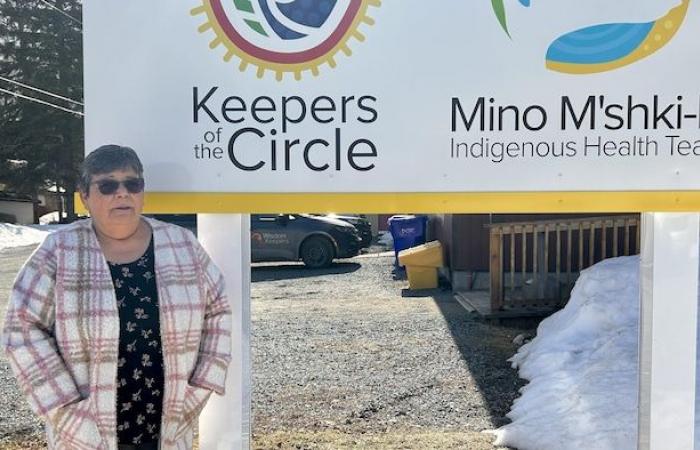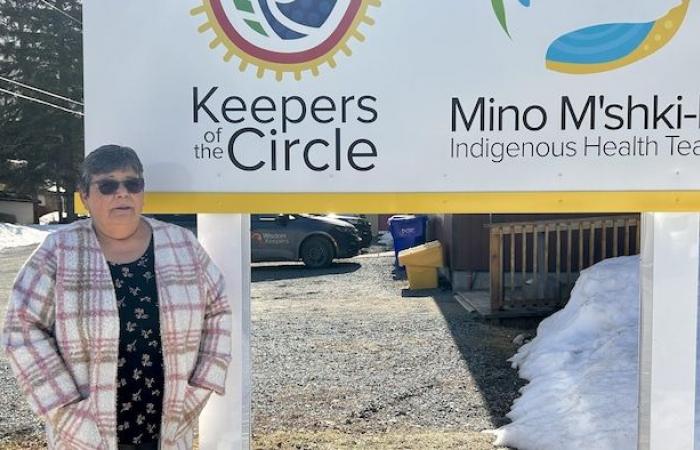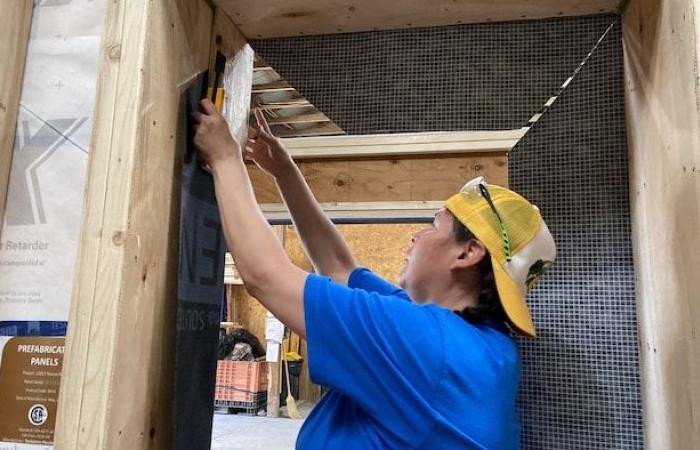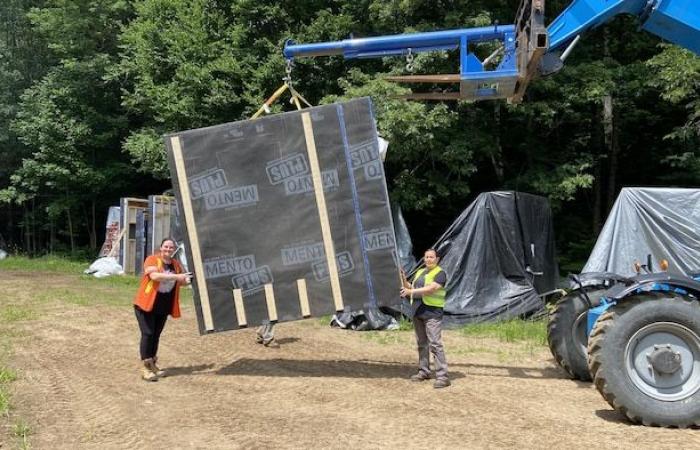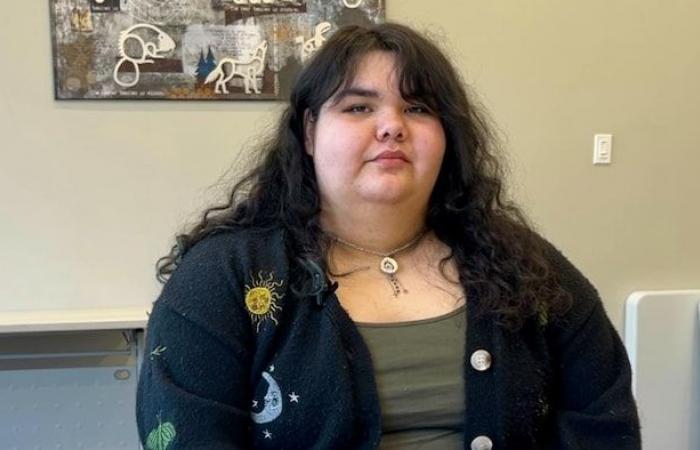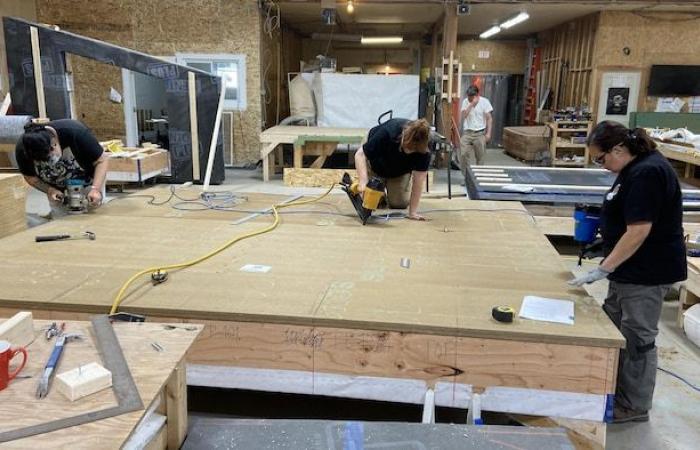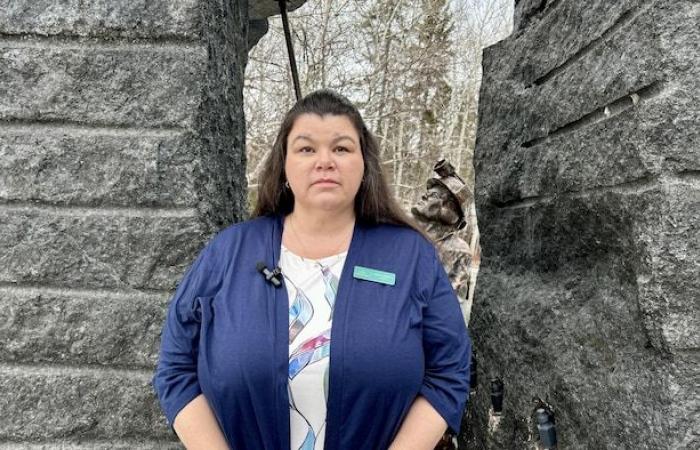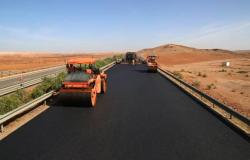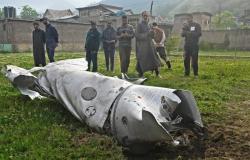Aboriginal women trained in Kirkland Lake, in northern Ontario, will build eco -friendly modular houses in a factory that will open in August 2025. In addition to creating jobs, the project aims to meet urgent housing needs in isolated Nordic communities. The objective is to build 100 houses per year.
Bertha Cormier, Managing Director of Keepers of the Circle [traduction libre : les gardiens du cercle]the formative structure, underlines that its organization obtained a field of five acres for the modest sum of $ 5, thanks to a gesture of the municipality of Kirkland Lake.
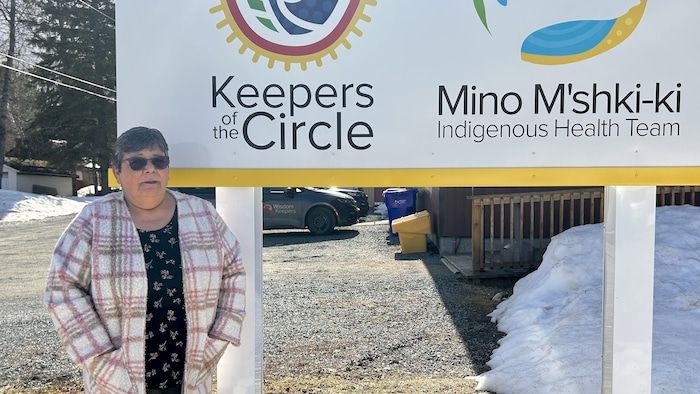
Open in full screen
Bertha Cormier defends the construction in construction for Aboriginal women in Kirkland Lake with a view to economic autonomy.
Photo: Radio-Canada / Déborah St-Victor
For her, this symbolic gesture goes beyond land value: it represents a concrete commitment of the city towards reconciliation and sustainable development of the community.
Training that transforms lives
The project was born from a partnership with Tooketree Passive Homesa Baysville company specializing in the construction of ecological modular panels.
Thanks to this collaboration, more than ten Aboriginal women in the region, often without prior experience, received training directly on the site.
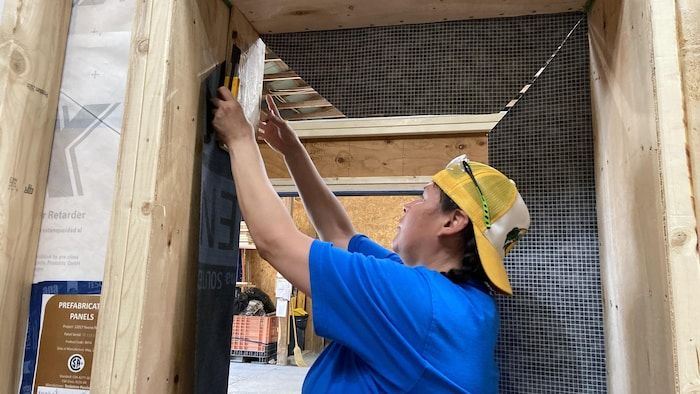
Open in full screen
One of the participants in training.
Photo: Passive Tooketree Homes
On the site, they learned to use electrical tools, manufacture and assemble modular panels.
They become stronger women, safer from themselves, they find a voice.
It allows them to acquire skills in industry, but also to strengthen their self -confidence
says Ms. Cormier, of the Matachewan First Nation.
For the director, this training is particularly important for women faced with domestic violence. According to her, many remain in a toxic relationship simply because they have no economic stability.
By giving them confidence and giving them the means to act, we allow them to make choices. […] They know that they can succeed alone
she said.
Housing adapted to Nordic realities
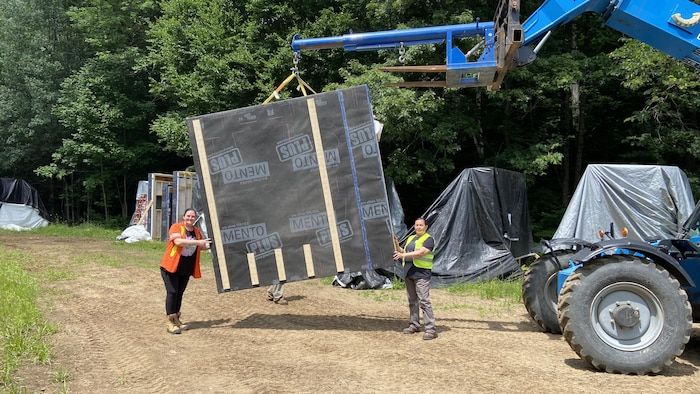
Open in full screen
Together, these indigenous women put their training into practice to build prefabricated houses.
Photo: Passive Tooketree Homes
Ms. Cormier specifies that the prefabricated houses will be transported in winter by the ice roads, then mounted quickly on site.
Our indigenous families are often overcrowded in houses. Many coastal communities, due to floods, face mold and other health problems. This project will help solve some of these problems
she adds.
She also underlines the cultural aspect: modular houses will promote intergenerational cohabitation, a key element to preserve family ties, according to her.
I feel more powerful
: the concrete impact on the participants
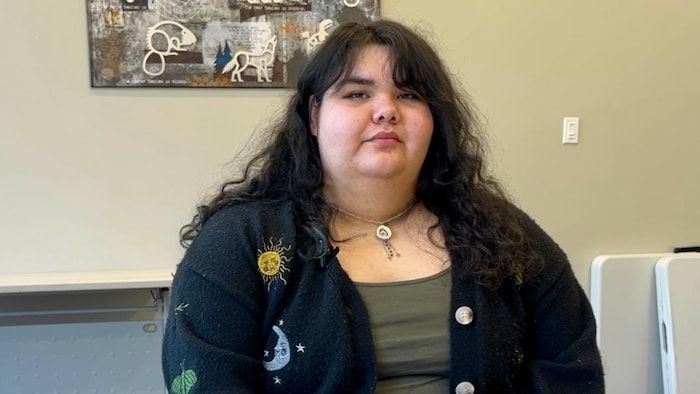
Open in full screen
Taylor Macmillan claims to gain insurance by participating in the project to build ecological modular houses for north indigenous communities.
Photo: Radio-Canada / Déborah St-Victor
Since May 2024, Taylor Macmillan has participated in the training. Like others, she started the adventure with doubts.
-I started training with great hesitation and fear. […] I definitely feel more confident.
Although without any experience at the start and even unable to read a measuring ribbon, she managed to build modular panels thanks to the help of the trainers, experiencing great pride in front of what they had accomplished.
The member of the Anishinabe First Nation of Roseau River also sees in this project a response to stereotypes. By doing things labeled as male, I feel more powerful
she said.
Personal and community pride
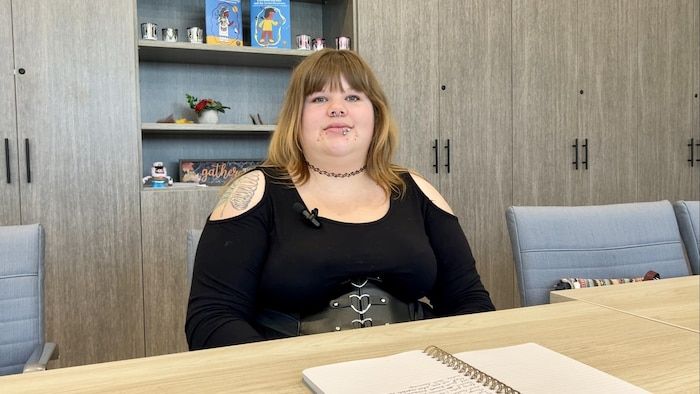
Open in full screen
Alexie Polson decided to embark on the project despite her initial reluctance.
Photo: Radio-Canada / Déborah St-Victor
Alexie Polson, from the Timiskaming First Nationalso joined the project when she was pregnant.
I never liked the construction […] But this opportunity was a new experience to learn. […] This helps build housing for our community
she says.
Proud of her career, she encourages other women to embark on areas like this, and encourages them to leave no one.
It is very stimulating. It strengthens our confidence, that’s for sure
she said.
Precious training, despite the logistical challenges
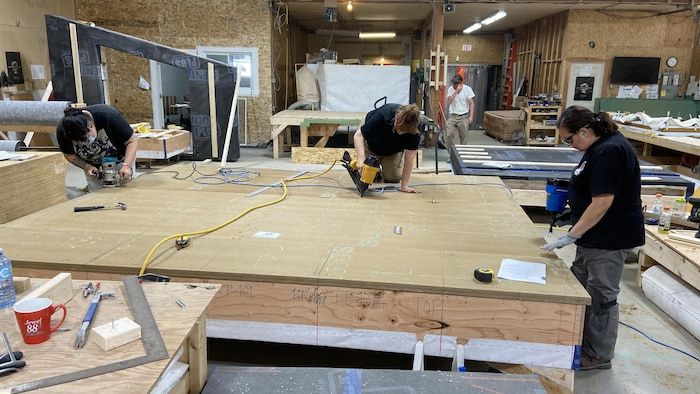
Open in full screen
Aboriginal women using electrical tools in a training session.
Photo: Passive Tooketree Homes
Rick Zytaruk, financial director of Tooketree Passive Homes, explains that the company has already welcomed between 10 and 15 young Aboriginal women in Baysville, in small groups.
It was difficult for them, because they usually have to travel from Kirkland Lake. They were far from home
he underlines.
He notes that some have realized that this job did not suit them, while Others are extremely interested in this work
.
Mr. Zytaruk would like to accommodate more trainees, but the installations only make it possible to form three or four people at a time. The company therefore seeks other sources of financing.
A factory project carrying the future
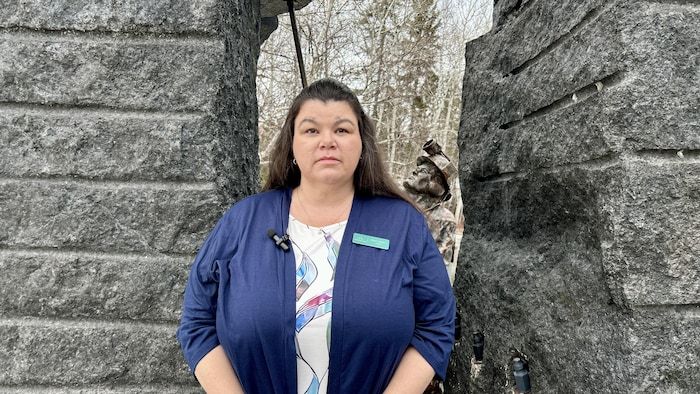
Open in full screen
Stacy Wight supports the Keepers of the Circle project, emphasizing the social impact and reconciliation through the training of Aboriginal women.
Photo: Radio-Canada / Déborah St-Victor
Stacy Wight, mayor of Kirkland Lake, born and raised in the North, says he is proud to see this project materialize.
The staff helped them choose the right location […] Then, the council had the pleasure of selling this property to one dollar per acre in the spirit of reconciliation
she said.
She hopes that this initiative will serve as a model, because, in her opinion, indigenous women often leave with disadvantage, being considered inferior. This project raises them within our community beyond all expectations.
I believe that it will inspire other communities to seek ways to associate with their indigenous communities
adds the mayor.
As Bertha Cormier, Director General points out, this project gives Aboriginal peoples the feeling that they too can actively contribute to the well-being of their communities and offers them the concrete possibility of becoming the actors of change.
Keepers of the Circle
is located on the traditional lands of the Anishinaabe people, shared by the ojibwés, the Algonquins, the Cris and the Métis.

